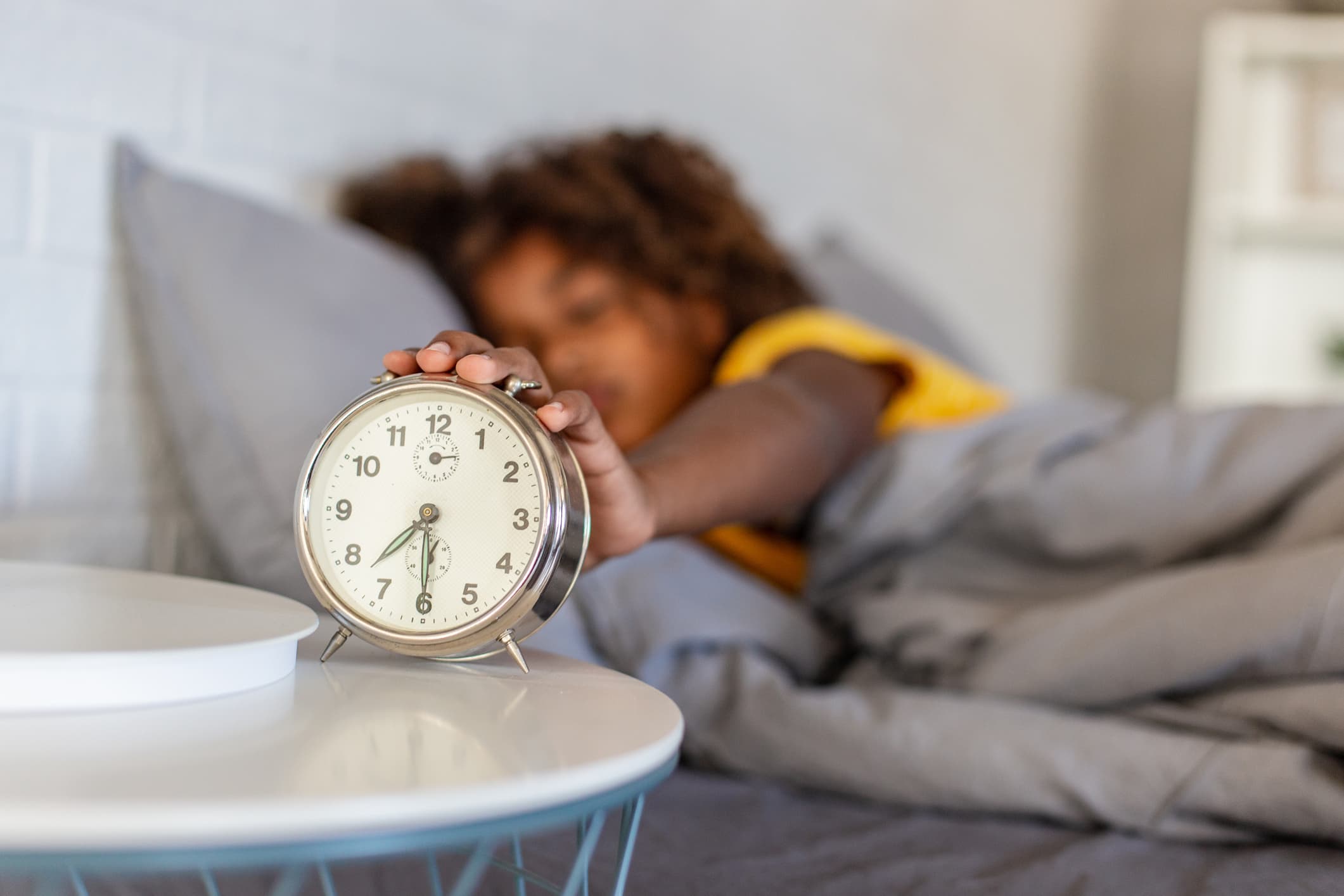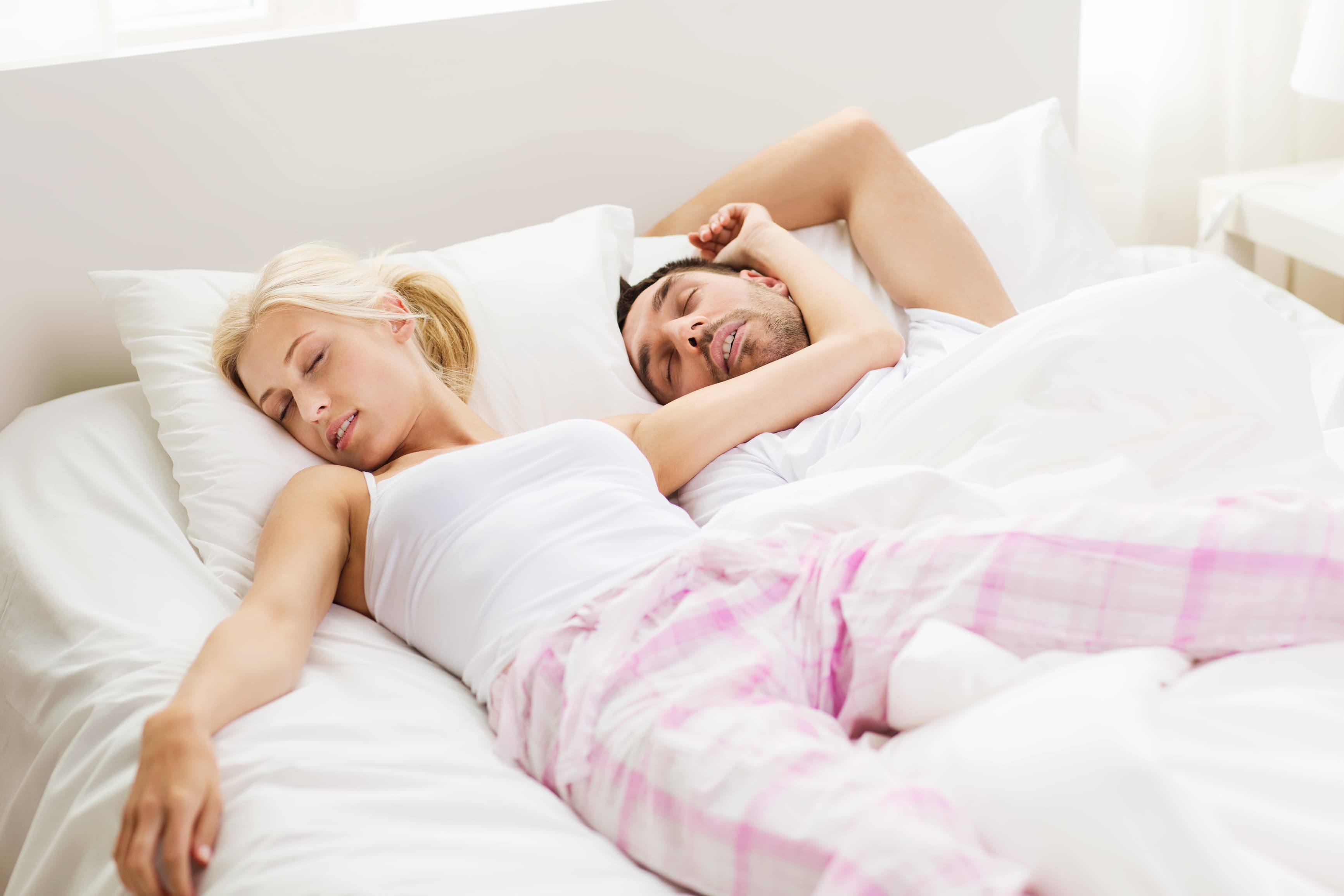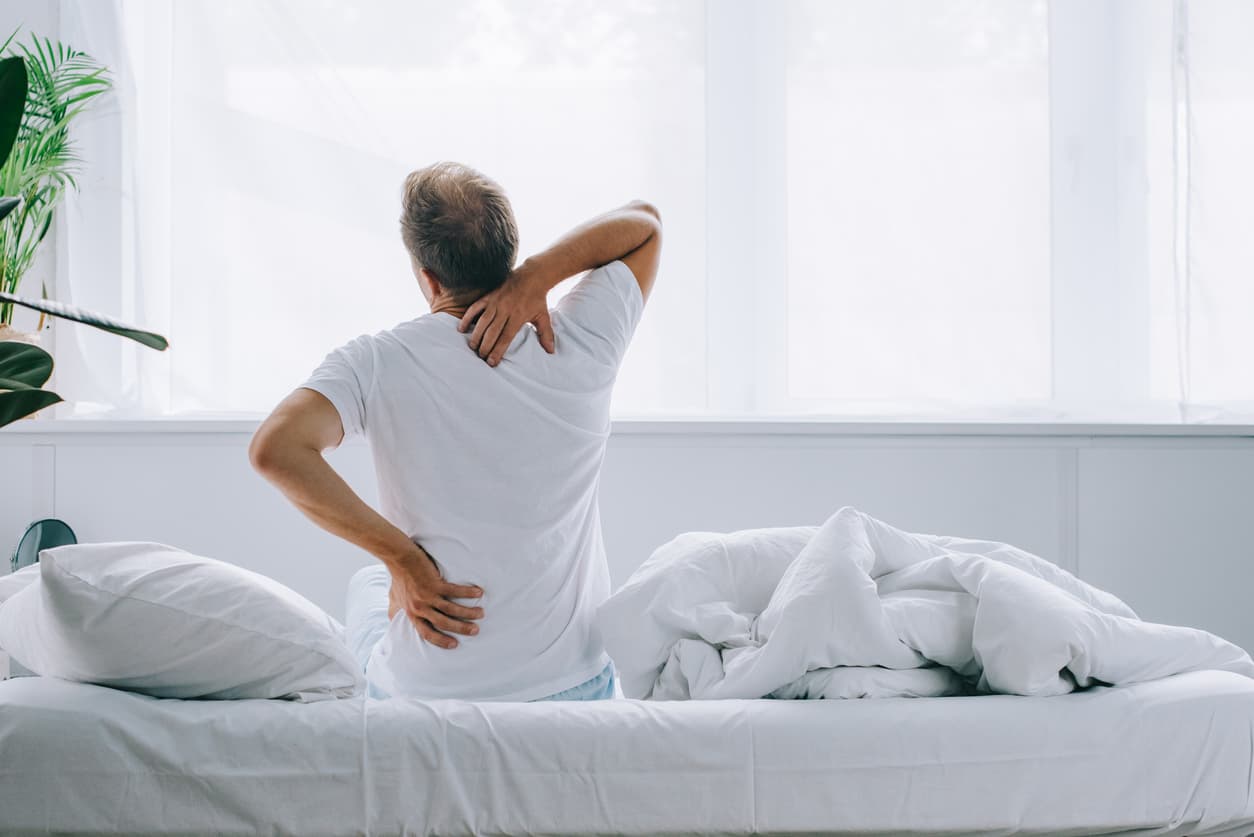Your sleep habits are vitally important for your mental, physical, and emotional health as well as your safety, your productivity, and your relationships. But can six hours of sleep be enough for you? Are some individuals lucky enough to only need six hours? Or could you be sleep-deprived and not realize it?
Read on to find out if you're getting enough sleep and how to set yourself up for better sleep success if you need it.
Average Sleep Needs by Age
Sleep needs change as you get older, so committing to one sleep schedule your whole life may not give you enough sleep. Or not allowing your children to sleep the appropriate amount could affect their health and temperament.
Did you know that you were sleeping as many as 19 hours a day up to about three months of age? You probably woke up just long enough to disturb your parent's sleep again. Then you were back off into dreamland.
The hours of sleep you need diminishes with age. By 1-2 years, you may have been sleeping as little as 11 hours. You needed 8-17 hours in your teen years. But many teens don't get enough sleep due to modern technology, friends, and school pressure.
Once you become an adult, enough sleep means getting 7-10 hours per night. Hours of sleep needed decrease slightly for older adults, but not as much as you think.
You must listen to your body. Seven hours to eight hours of sleep isn't enough for some people, let alone only six hours of sleep.
Scientists have found one genetic exception in a small population who needs only six hours of sleep. But the vast majority of people who think they only need four to six hours may be fooling themselves.
Do you feel productive, happy, and healthy with less sleep? If you said yes, it's because sleep deprivation causes a release of wake-up and stress hormones. You may feel alert for a while. But this does lasting damage to your health.
If you need caffeine, stimulants, or excessive exercise to get going in the morning, you likely need more hours of sleep.
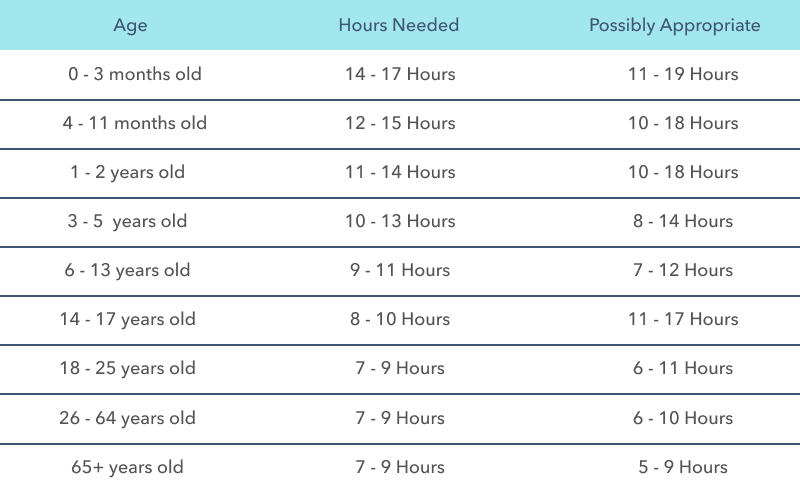
In this chart, the hours of sleep for each age group is broken down into two sections. The “Hours Needed” column depicts the number of hours that is suggested for the subject to lead a healthy lifestyle, whereas the “Possibly Appropriate” column outlines the amount of flexibility that each age group can have and still function effectively.
It can be tempting to neglect a healthy sleep schedule when it feels like you don’t have enough hours in the day, but pushing yourself to test the length of time you can go without sleeping is a very ill-advised strategy and can affect you in the long-term.
Sleep is the Foundation for Good Health
According to the Sleep Foundation , "Scientific research makes clear that sleep is essential at any age."
Your body needs sleep to:
- Support healthy brain function
- Support emotional and mood health
- Support hormonal health and balance
- Repair the body and build muscle
- Eliminate cellular waste
- Replace worn-out cells with healthier ones
- Help improve the immune system and reduce your risk of getting sick when exposed to something contagious
- Rest and restore your mind and body
- Prepare you to be productive during the day
- Set you up to experience good cognitive performance
Sleep disorders and sleep choices can prevent restful sleep and its benefits.
Not Prioritizing Sleep Has Negative Health Consequences
Lack of sleep can significantly impact your daytime safety and performance. Studies have shown that you lose brain and body function when you deprive yourself of as few as 1-2 hours of sleep. You may even experience micro-sleep if you get fewer than six hours of sleep.
During micro-sleep, your brain zones out for short periods. If you've ever almost had an accident while driving, or made an embarrassing mistake at work when you know better, poor sleep is a likely culprit.
The Health Effects of Sleep Deprivation
Over time, sleep deprivation will impact your health. Insufficient sleep can lead to significantly increased risk to overall health and specific concerns like these:
- Premature aging inside and out
- Anxiety, depression, addiction, and other mental health challenges
- Cardiovascular disease
- High blood pressure
- Stroke
- Diabetes
- Unexplained weight gain and obesity
- Falls and injuries
- Poor cognitive performance
- Sleep disorders that require sleep medicine
Read more: What is Sleep Debt? | Leesa
Tips To Consider When You're Not Getting Enough Sleep
Follow a Regular Schedule
Your circadian rhythm strongly influences your sleep quality and sleep patterns. It tells your body when to start winding down and when to get up. People who follow a regular sleep schedule may even find they don't need an alarm.
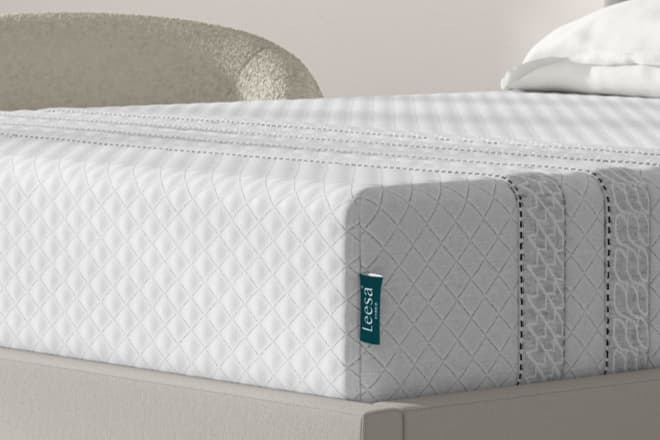
They experience deeper sleep, and their body naturally wakes up on time.
When you start feeling tired at night, try to go with it even if it seems early to you. This is your circadian rhythm coaxing you to sleep. If you override your natural clock, your body thinks you don't have time to sleep. It pumps the wake-up (and stress) hormone cortisol into your bloodstream, causing what people sometimes call a "second wind". This can lead to trouble falling asleep, insomnia, and poor sleep.
Read more: How to Adjust Your Sleep Schedule | Leesa
Create a Calming Bedtime Routine
Like the average person, you have a busy schedule. It's hard to wind down, get enough hours, or get a good night's sleep.
For those who haven't had a consistent sleep schedule in the past, a sleep duration of seven to nine hours may seem impossible. Developing a relaxing bedtime routine helps you rediscover your natural rhythm to fall asleep faster and get a good night's sleep.
A relaxing routine might include:
- Warm bath
- Using Essential oils
- Turning on relaxing music
- Doing deep breathing exercises in meditation
- Gentle, slow stretching
- Reading a bedtime story to the kids, using an actual book, since devices can disrupt sleep
- Reading a good book yourself
Create a comfortable environment
You'll get better sleep when you pay attention to your sleep environment. Try:
- Keeping it clean and uncluttered
- Making the room dark
- Cleaning sheets regularly
- Running white noise
- Maintaining a suitable sleep temperature
Be More Active
What you do during the day impacts poor sleep as much as your sleep time routine. To improve sleep for your age group, make sure you get enough exercise.
The average adult in the US does not.
Exercise supports a healthy internal clock. At the same time, it can reset a sleep cycle when you're trying to get back on track. It's also crucial for overall health and preventing conditions like heart disease.
As a bonus, it improves your mood and supports the body's ability to regulate stress response. Given that poorly managed stress often impacts how people sleep, this daily activity is critical.
Minimize Caffeine, Alcohol, and Nicotine
Heavy meals near bedtime aren't the only good sleep thieves. Substances often cause sleep problems.
Alcohol intake too close to bedtime helps people fall asleep. But after three to four hours, they often wake up and can't go back to sleep. That's because it stops REM sleep, a sleep stage that sleep medicine researchers believe is critical for mental health and emotional well-being.
Caffeine stays in the system and can impact sleep quality for at least seven hours. It increases alertness by impacting cortisol production.
When it comes to nicotine, it depends on how you consume it . Regardless, it will impact your mental and physical health. Smoking/vaping can lead to nighttime sleep apnea, tossing, and snoring. Even if you use nicotine alternatives like patches or gum, those increase your risk of heart disease, high blood pressure, and the production of cortisol.
Reduce Your use of electronics
Young adults aren't the only ones with device addictions. People of all ages struggle with this, whether they're watching TV before bed or staying hooked to a smartphone.
You've probably heard of blue light, a type of light that electronics produce. Even though you can't physically see it, it mimics outdoor light. This tricks your brain into thinking it's daytime.
Buy a Comfortable Mattress
Don't ignore this step to getting your best night's sleep. If you have a mattress that doesn't support your spine properly, amplifies body heat, creaks every time you move, and makes you feel like you're caving into the center, you won't be able to get good sleep.
You'll have to change positions to avoid pressure points constantly. You'll end up kicking the covers away to cool off, only to find yourself freezing 10 minutes later.
The Bottom Line: is 6 Hours of Sleep Enough?
The short answer is yes. The vast majority of us need more than six hours of sleep to feel good and function at our best. Scientific research shows that the magic number for most people is 7-8 hours.
To determine if you're getting enough sleep, consider the following:
Do you wake up feeling tired?
Do you feel a significant energy drop mid-day that sends you running out for a coffee?
Are your eyes puffy with dark circles under them?
Are you craving junk food and gaining weight?
Are you depressed and irritable with trouble focusing on tasks?
If you answered yes to any of these questions, don't ignore the signs. If you're not getting enough sleep, you can take steps to improve it. Choosing a supportive mattress can be an important part of the solution.
FAQs
Why am I Still Tired After 8 Hours of Sleep?
The eight-hour sleep requirement is a myth. Healthy adults need 7-10 hours of sleep every night. Genetics, lifestyle, and environmental factors can all influence how much sleep you need.
How Many Hours of Deep Sleep Per Day?
A healthy adult needs between 7-10 hours every day. To determine how much sleep you need, pay attention to how your feel and act during the day. If it's hard to get up in the morning, or you struggle with focus, productivity, excessive stress, emotional breakdowns, or daytime tiredness, you're probably not getting enough sleep.
What Happens After 24 Hours of no Sleep?
After only 24 hours without sleep, you're likely to experience drowsiness, irritability, anger outbursts, brain fog, tremors, lack of coordination, and puffy eyes. If you have cumulative sleep deprivation, going 24 hours without sleep may be even worse for you.
How Much Sleep is Too Much?
Excessive sleeping can be just as unhealthy as undersleeping. It can increase your risks of heart disease, diabetes, obesity, and anxiety, even more so in adults after 45. It can also leave you feeling groggy and drained throughout the day, almost as if you hadn’t had a deep sleep the night before. The hours of sleep needed to feel well-rested will vary depending on the person, but in general, high-quality sleep in adults should last no longer than 9 hours on a regular basis.
Do Women Need More Sleep?
Studies show that because women tend to do a lot of multitasking throughout the day, they have a lower quality of sleep. This results in them needing about 20 extra minutes of sleep every night.
